Kitchen Benchtops: The Alternatives to Engineered Stone
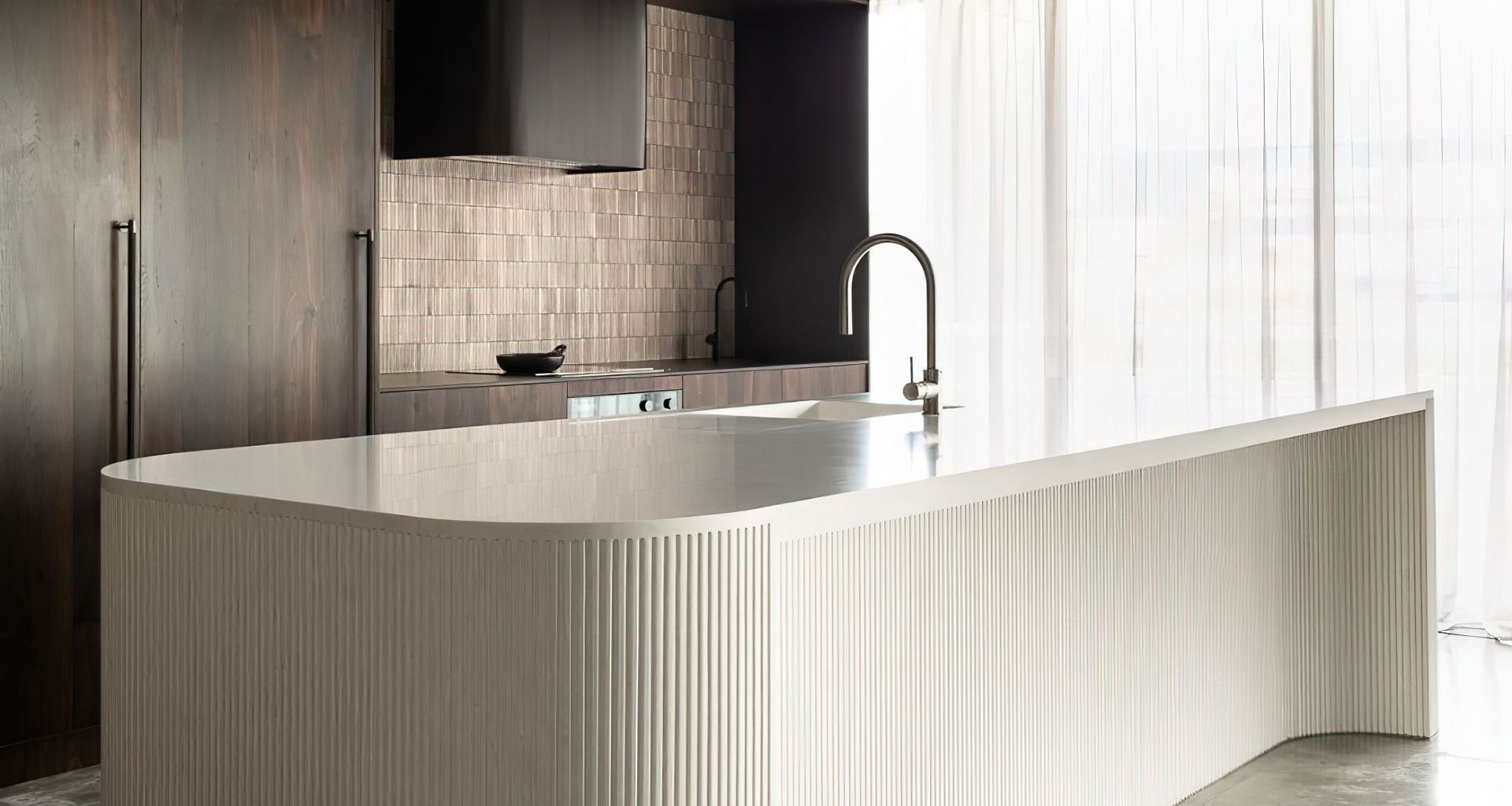
My role as an interior designer specifying products is to know the products and to specify ones that will help promote a healthy environment whether in your home or workplace. This goes beyond the final product: it also encompasses the safe and ethical manufacturing of these products.
One particularly important product currently under discussion is “engineered stone” and the issue of “silicosis.” Safe Work Australia provided a report to the government on August 16, 2023, with recommendations that have not yet been made public. In the meantime, several new engineered stones with low silica content are emerging. Below are some options including alternative products for your benchtops.
Betta Stone: A sustainable, crystalline silica-free stone produced in Australia. The cornerstone of Betta Stone’s eco-friendly ethos lies in its composition – crafted from 100% recycled glass, each slab boasts unique textures and patterns akin to natural stone.
Porcelain: Growing in popularity as a benchtop material, porcelain comes at a higher cost but offers durability, high resistance to scratches and abrasions, and UV resistance. It is an excellent choice also for outdoor kitchen benchtops as it doesn’t fade over time like engineered stones.
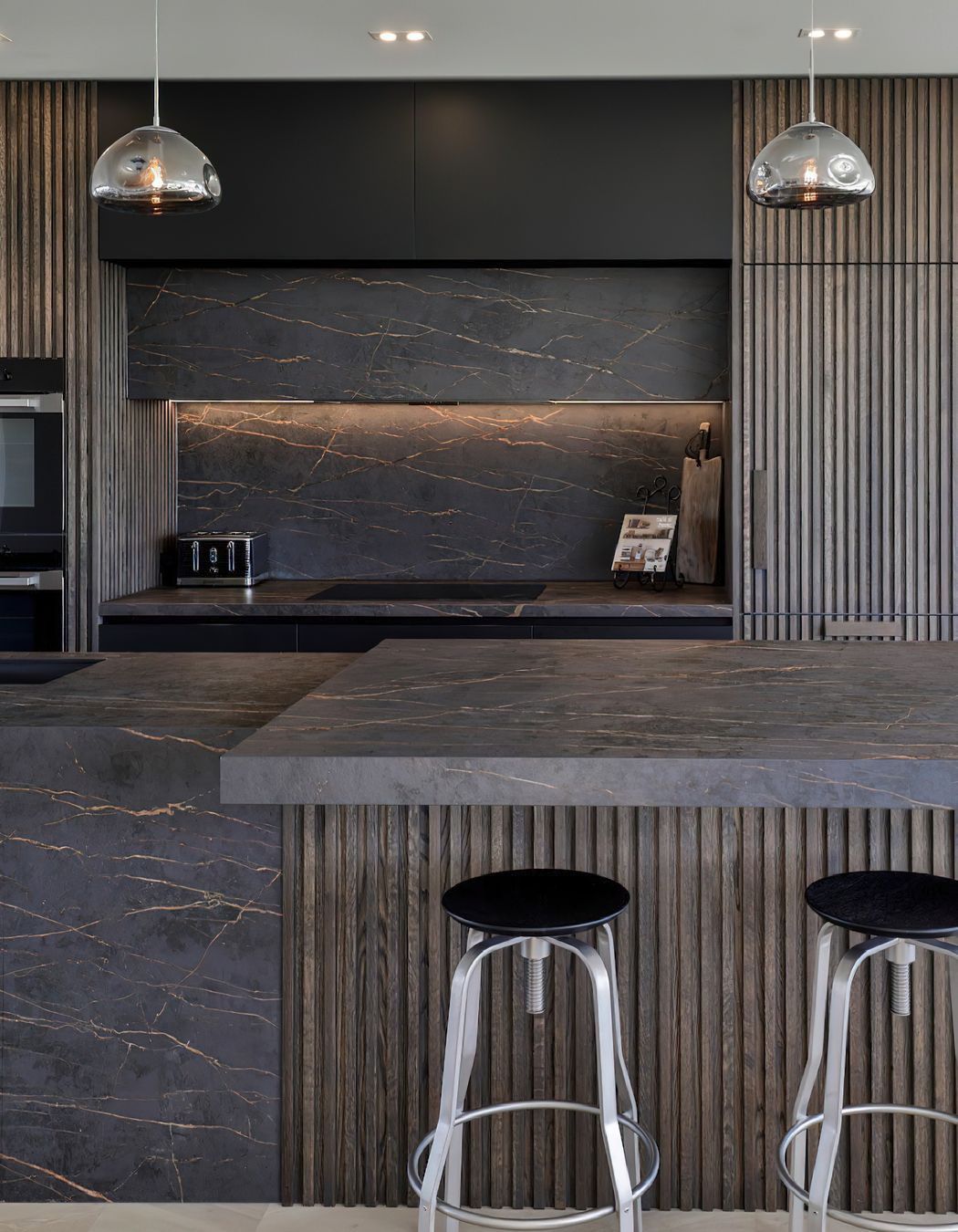
Natural Stone: Natural stone slabs can vary in patterns and colours, so you’ll need to personally select one from the warehouse. Keep in mind that some natural stones, like marble, are not suitable for kitchen benchtops due to their softness. Granite and quartz benchtops are more durable but come at a higher cost than engineered stones.
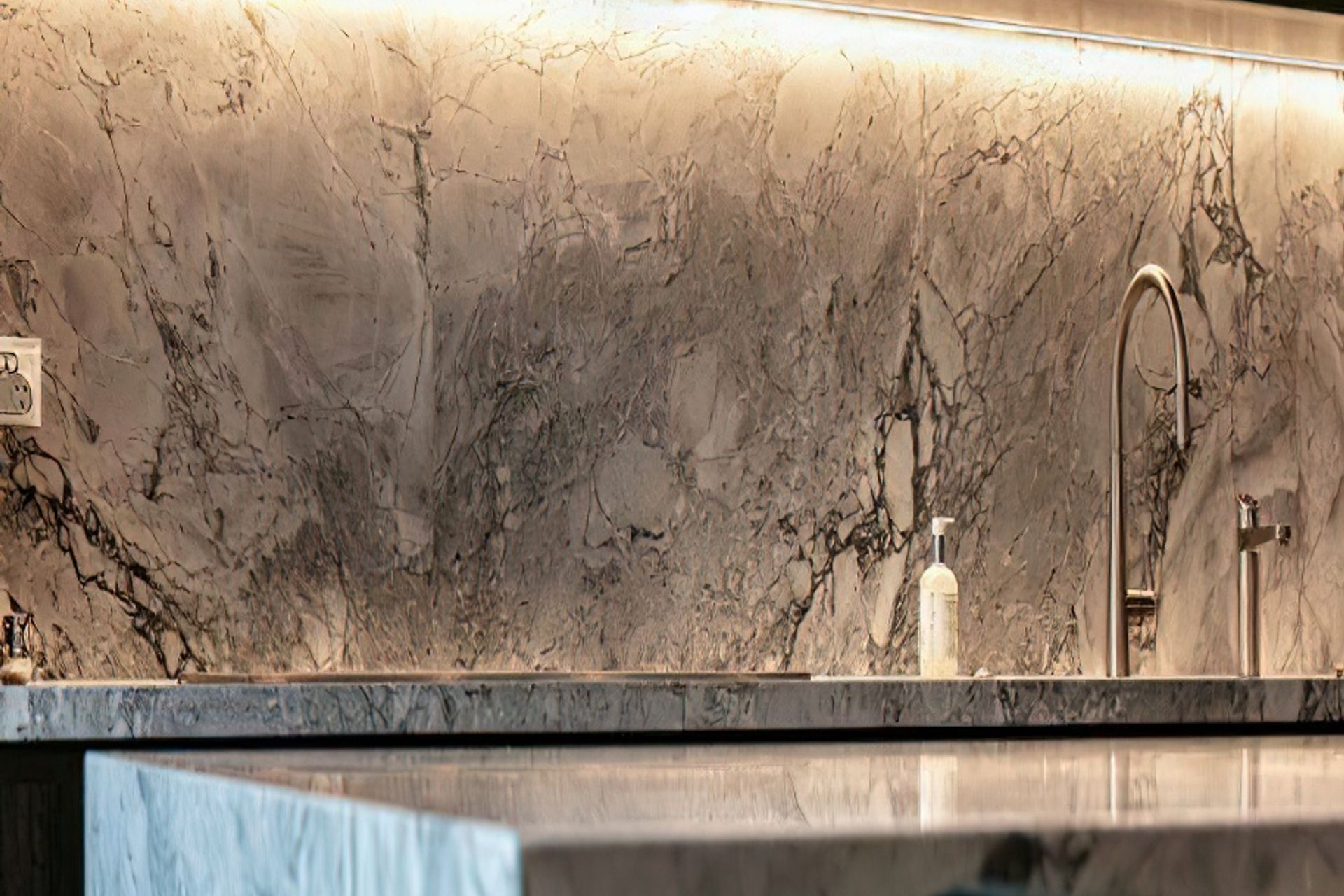
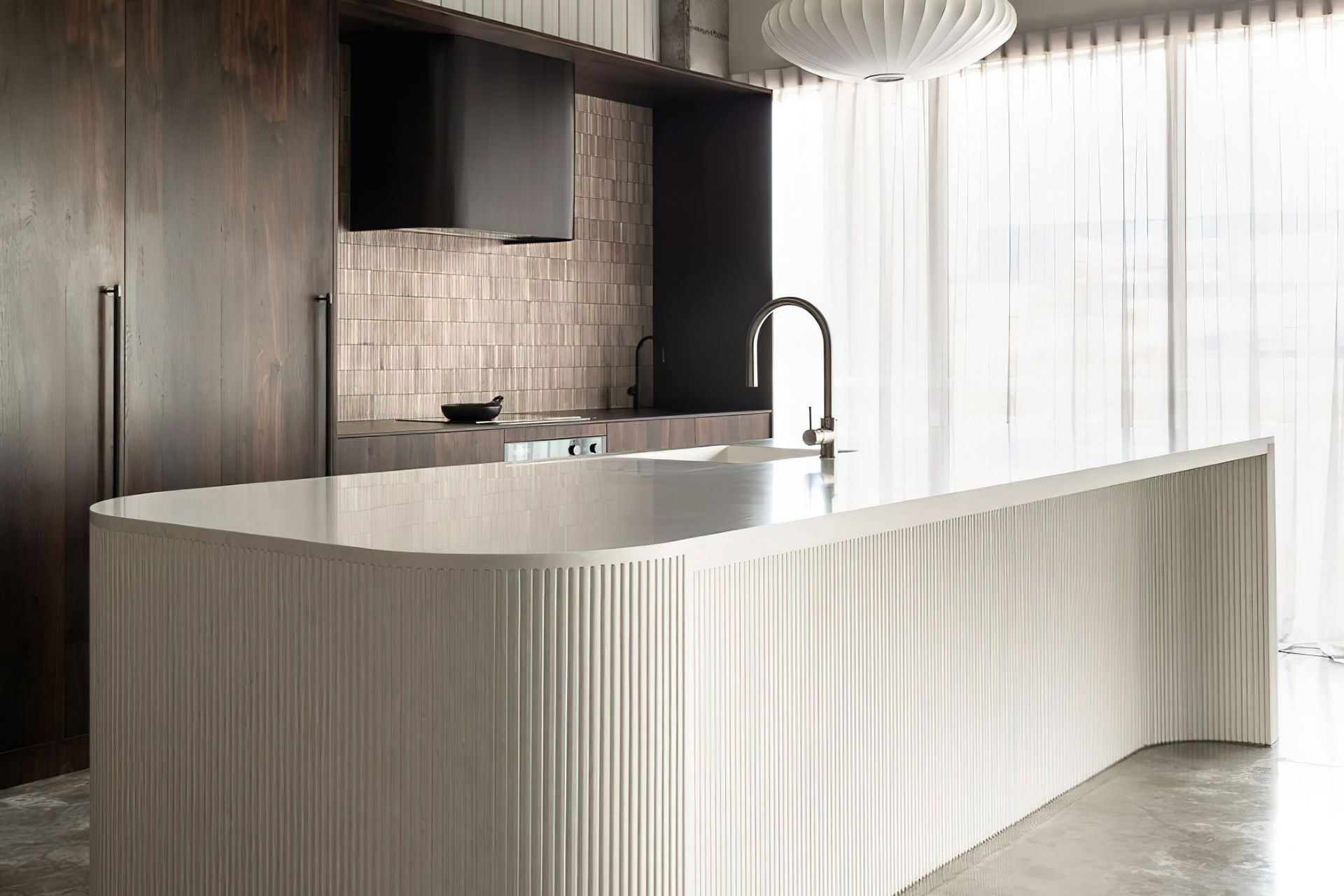
Acrylic Solid Surfaces: These surfaces are manmade with a solid and consistent composition. They are durable, and non-porous making them more resistant to stains and cracks than natural stone. There are a number of companies that produce solid surfaces, these include, for example, Corian and Meganite.
Low Silica Engineered Stone: Fabricators are using new technology to work with engineered stone and reduce the content of crystalline silica content in engineered stone to 40% or below with some like Silestone HybriQ+ content less than 10%.
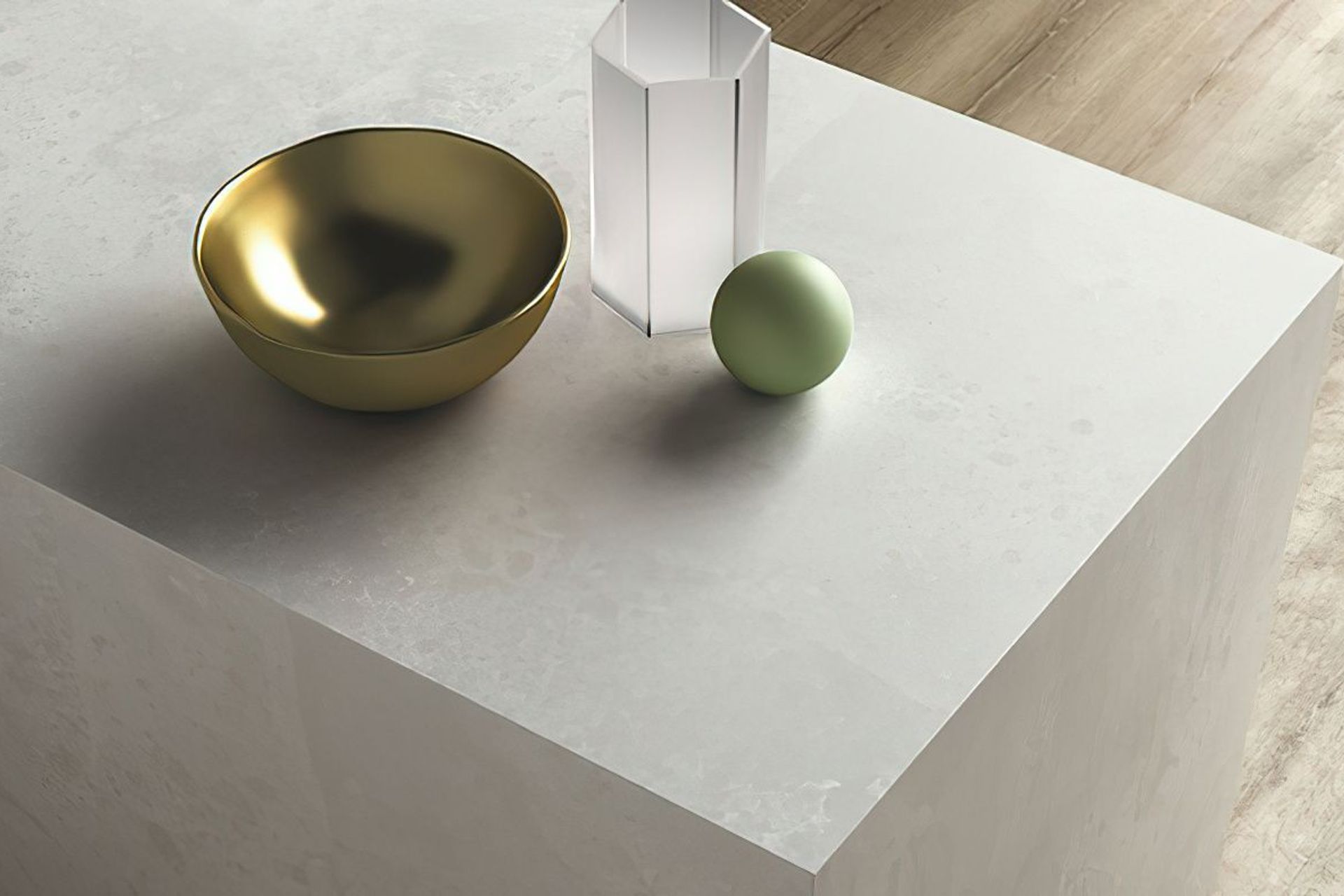
Timber Benchtops: Timber benchtops offer a timeless and natural elegance to your kitchen workspace. They are not just visually appealing but also durable and resistant to heat and moisture when properly sealed.
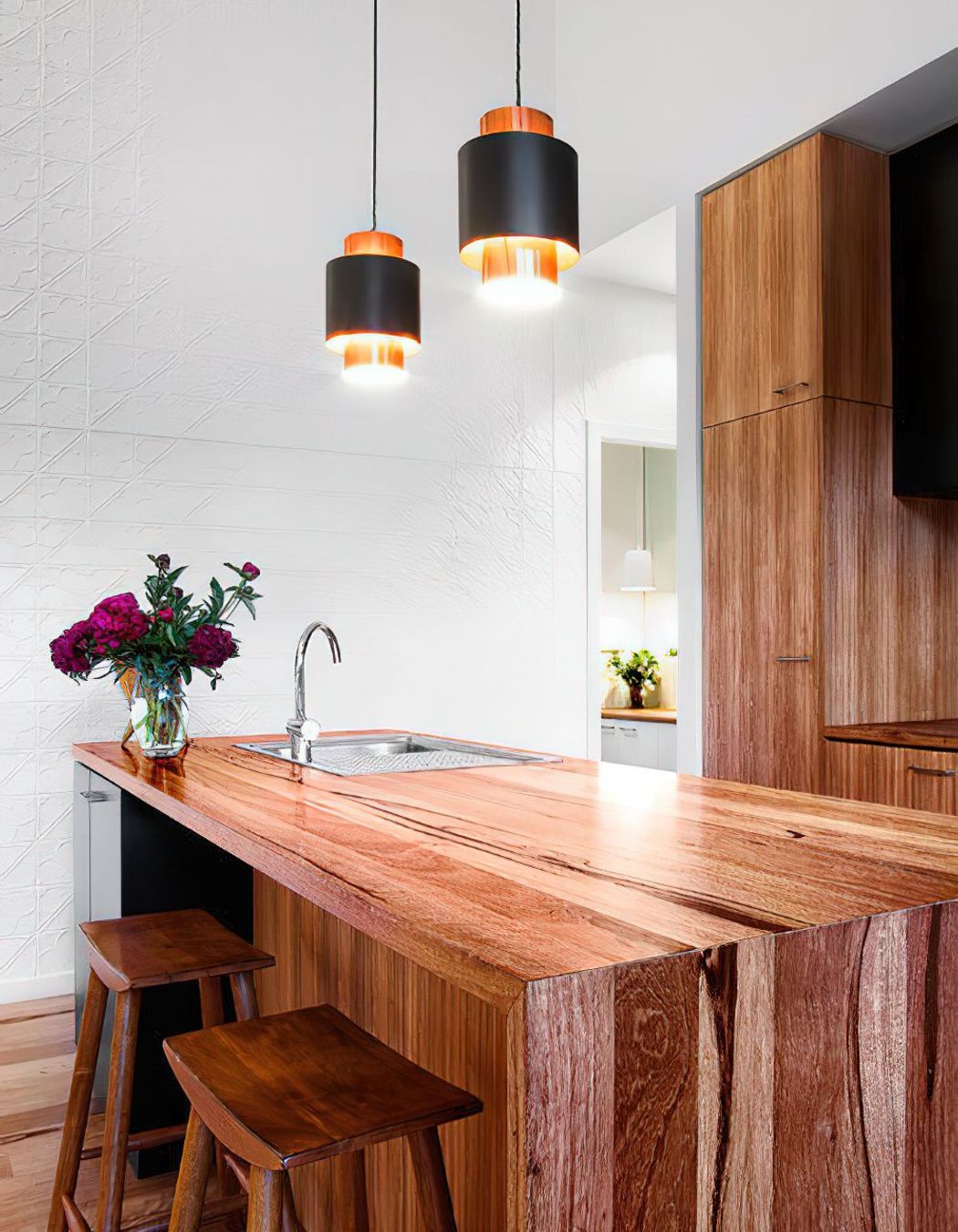
Laminate: Laminate benchtops are a versatile and budget-friendly choice. They offer an extensive range of colours, patterns, and textures, allowing for limitless design possibilities. Laminate is highly resistant to stains, easy to clean, and maintains its appearance over time.
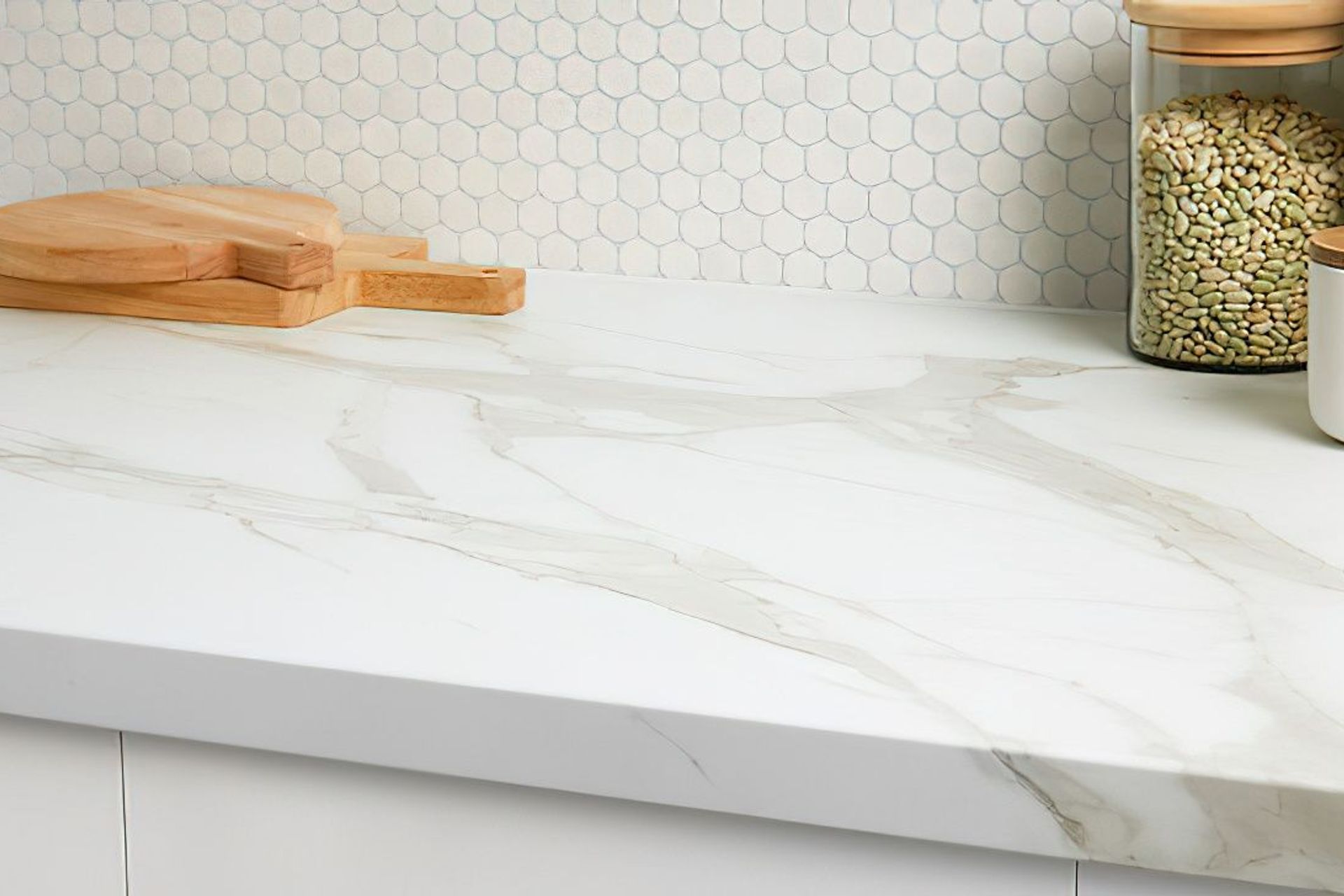
In conclusion, as your interior designer, my commitment extends beyond aesthetics. Your well-being and the ethical considerations surrounding the materials we use are paramount. We are closely monitoring the developments regarding engineered stone and silicosis to ensure the utmost safety in your design choices. Feel free to reach out for further discussions and guidance as we navigate these important decisions together, ensuring a beautiful and healthy environment for your home or workplace.
